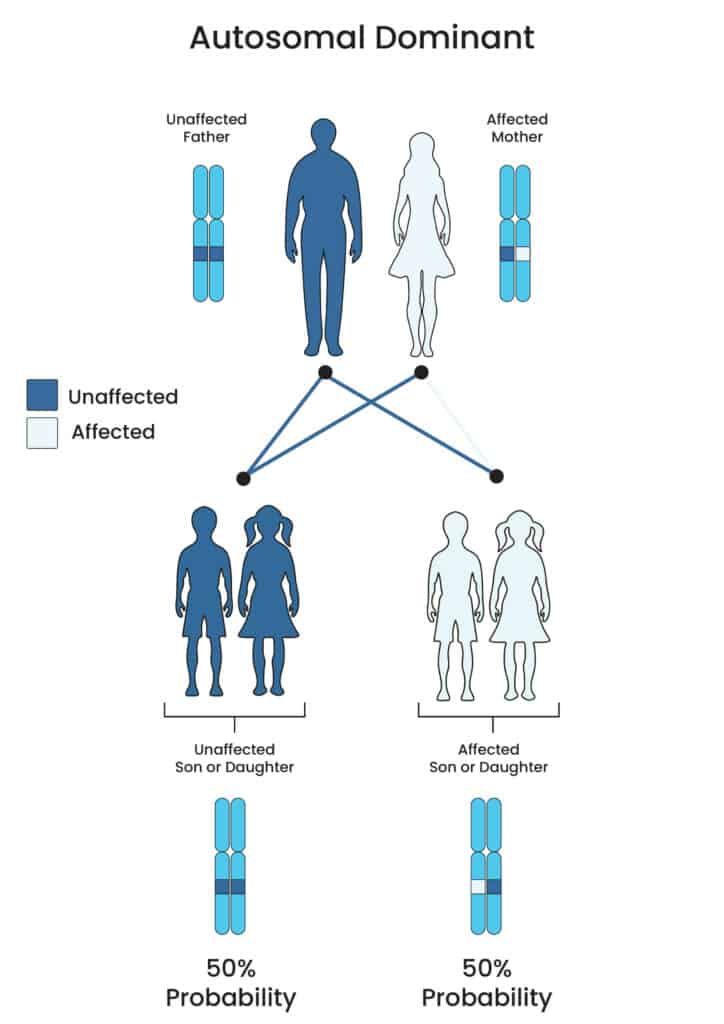Abstract
Hypertrophic Cardiomyopathy (HCM) is one of the most common genetic heart conditions to affect American people. Globally, HCM affects around 1 in 500 people. Although most people can get through life without any visible symptoms or only experience mild symptoms, some cases of HCM can prove life-threatening. The chances of sudden death without any visible sign are very high in HCM cases. A recent study by the University College London found a new gene that can cause HCM.
Hypertrophic Cardiomyopathy: What Is It & How It Happens?
HCM is a heritable heart disorder characterized by the thickening of the septum separating the heart’s ventricles. The thickened muscle leads to an obstruction in proper blood flow. This makes an abnormal heart sound during the heartbeat.
*Note: Septum is the muscular wall that separates the heart’s right and left ventricles. Ventricles are two major chambers inside the heart that help pump blood.
Image Source: American Heart Association
The image depicts a healthy heart and HCM heart structural differences.
HCM may cause shortness of breath, chest pain, palpitation, dizziness, and fainting. Although the symptoms may not present with much life threat, HCM can cause other health complications such as:
- Irregular and rapid heartbeat
- Blocked blood flow
- Improper closure of the mitral valve and leakage of blood back into the upper chamber of the heart
- Enlargement of the ventricle of the heart and ineffective blood pumping
- Heart failure and sudden death
Genetic Basis Of HCM
Inheritance of HCM follows an autosomal dominant pattern, i.e., having an error or errors on one copy of the gene in each cell can cause the disease.
Affected individuals, therefore, have a parent with the illness which gets passed to them.
If you have a parent with HCM, there’s a 50% chance of the disorder being passed to you.

Image: Autosomal Dominant Inheritance
HCM is a polygenic disorder, i.e., it can be caused by mutations in two or more genes.
All the genes involved with this disorder appear to be related to the heart’s contraction via structures known as sarcomeres.
However, the exact mechanism of how the gene mutations lead to cardiac muscle hypertrophy is still unclear.
What is ALPK3 (Alpha-protein Kinase 3)?
The ALPK3 gene contains information for the production of the alpha-protein kinase 3. This protein regulates the growth of heart cells (cardiomyocytes) and is usually found in heart muscles or skeletal muscles.
In 2018, certain changes in the ALPK3 gene were found in a pediatric cardiomyopathy patient from Tunisia. The patient, a 3-year old boy, had hypertrophic & dilated cardiomyopathy and muscular and skeletal deformities.
The Study: ALPK3 Gene Changes (Variants) Discovered As A Genetic Cause of HCM
The study conducted by University College London aimed to find the frequency of pathogenic variants of the ALPK3 gene in HCM patients.
*Pathogenic variant is a genetic change that has been proven to increase the risk of developing a particular disorder.
Study Conditions
Researchers analyzed samples from 2817 HCM patients from healthcare centers in the UK, Spain, Latvia, Russia, Denmark, Brazil, and Argentina for the study.
DNA was extracted from the samples with subsequent whole-exome sequencing and analysis of ALPK3 gene changes.
The researchers further compared the frequency of the ALPK3 gene changes in the subjects against the general population.
They also conducted familial screening for the ALPK3 gene changes to pinpoint whether the presence of the changes meant disease manifestation.
Findings of The Study
- Upon comparing the frequency of ALPK3 gene changes between HCM patients and the general population, the frequency rate was 16% higher in HCM patients.
- Disease onset was found to occur later in life (on average by 56 years) in the case of the ALPK3 gene changes compared to previously discovered genes (MYH7, MYBPC3, TNNT2, TNNI3).
- Patients carrying the ALPK3 gene changes had similar rates of heart failure and transplantation when compared to previously mentioned genes.
The newly discovered pathogenic variants called truncating ALPK3 changes (after their nature of mutation) will be added to the list of genetic testing/screening for HCM.
The study’s findings will answer the questions of many HCM patients who got diagnosed but did not know the exact cause.
New findings of disease causal factors open new pathways of diagnosis and therapeutic targets, which might help many afflicted people.
Recommendations For HCM Management
- HCM patients should keep their bodies optimally hydrated. However, overhydration should be avoided.
- Consulting your physician regarding caffeine and alcohol consumption is recommended.
- Competitive athletics should be avoided altogether as it increases catecholamines in the body. Catecholamines are thought to act as triggers for sudden heart attacks.
- Follow a healthy diet that includes a generous serving of fruits, vegetables, nuts, and seeds.
- Managing stress, monitoring your blood pressure, and keeping diabetes in check can help prevent the worsening of HCM symptoms.
Summary
- Hypertrophic cardiomyopathy (HCM) affects 1 in 500 people worldwide. In the US, HCM is one of the most common heart conditions affecting people.
- HCM is purely hereditary and is usually caused by changes in genes involved with the sarcomeres of the heart muscles.
- ALPK3 (Alpha Kinase 3) is a developmental protein that helps in the differentiation of cells of the heart.
- A study found ALPK3 gene changes to be the causal factor for HCM in adults.
- A combination of a healthy diet, minimal exercise, stress management, and controlling diabetes can help reduce the worsening of HCM symptoms in affected people.
References
- https://doi.org/10.1093/eurheartj/ehab424
- https://www.ahajournals.org/doi/10.1161/CIRCRESAHA.117.311059?url_ver=Z39.88-2003&rfr_id=ori:rid:crossref.org&rfr_dat=cr_pub%20%200pubmed
- https://www.heart.org/en/health-topics/cardiomyopathy/what-is-cardiomyopathy-in-adults/hypertrophic-cardiomyopathy
- https://www.ahajournals.org/doi/10.1161/CIRCRESAHA.121.318346?url_ver=Z39.88-2003&rfr_id=ori:rid:crossref.org&rfr_dat=cr_pub%20%200pubmed
- https://ghr.nlm.nih.gov/condition/familial-hypertrophic-cardiomyopathy/
- https://www.genecards.org/cgi-bin/carddisp.pl?gene=ALPK3
- https://www.proteinatlas.org/ENSG00000136383-ALPK3





